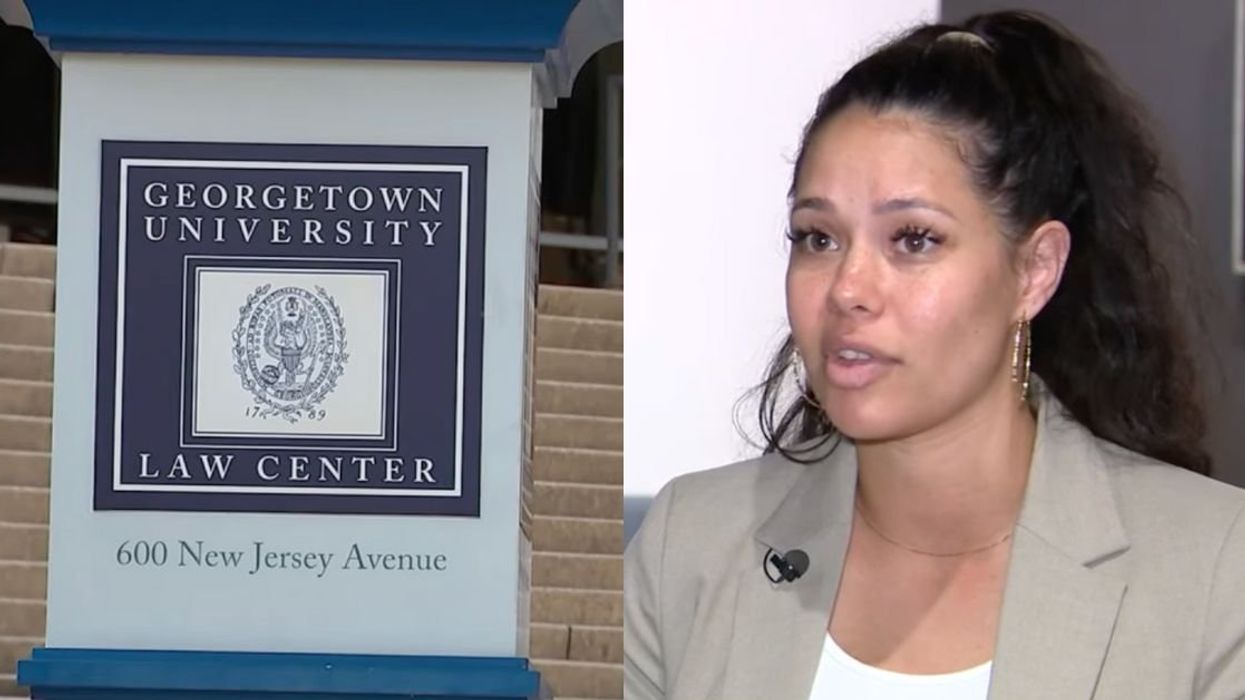After mounting pressure and online pushback, Georgetown University Law Center relented after its refusal to honor a pregnant woman's request to reschedule her final exams.
Brittany Lovely, a student at the private research university in Washington, DC, is expecting her firstborn in December, which coincides with finals week from December 6-13.
“I really wasn’t trying to get anything crazy to happen,” Lovely told CNN. “I asked if I could take the exam early.”
Her request was denied.
Lovely's baby is due on December 2, and her exam is scheduled at the Georgetown campus for December 13.
However, because she is expecting her firstborn, her baby is less likely to arrive by the due date. This means that it conflicts with her exam date and the exam deferral dates of December 16-18.
According to the Georgetown Law website, exam deferral dates are reserved for a death in the family, a "traumatic experience" such as a car accident, mugging, or robbery, and "childbirth during the exam period or immediately preceding the exam period."
Lovely consulted a university Title IX official—an attorney specializing in protecting students from sex-based discrimination at schools—who was happy to accommodate her.
The two worked together and came up with two options to present to the registrar and the Office of Academic Affairs. The first was to take the exam early at the start of the finals period or on the scheduled date with the students but from home.
Both options were rejected, and when Lovely met with the officials to find out why they denied her request, they cited the university’s honor code and its policy prohibiting anyone from taking exams early.
Officials did, however, suggest someone could sit with the newborn outside while Lovely takes the in-person exam on schedule and go on periodic breaks for breastfeeding.
The rage online was real.
After another failed attempt at seeking accommodations for her request, Lovely's peers banded together and drafted a petition that reached more than 7,000 students, faculty, and Hoyas—members and alumni of collegiate athletic teams representing Georgetown Law.
Lovely said of her approach:
“I was really trying to solve this in a very nonadversarial way. It feels so fresh."
The university caved but “only after all of the public outcry,” said Lovely.
Lovely hopes her story will spark changes for the university to accommodate future students going through similar obstacles.
“What I really would like to see is the school, and I guess law schools generally, to like to see their role in supporting their students and really show up,” said Lovely.
“I would expect a policy change at this point from the school, just to make sure that nobody else ever has to go through something like this again.”
You can watch a news report here.
- YouTubeyoutu.be
While a Georgetown spokesperson did not confirm details of Lovely's stressful account regarding her quest, they issued the following statement.
“Georgetown is committed to providing a caring, supportive environment for pregnant and parenting students. We have reached a mutually agreeable solution with the student who raised concerns."
“Georgetown offers academic and practical resources to assist in the completion of a student’s degree while they are pregnant or parenting including pregnancy related adjustments from the Office of Title IX Compliance, and disability accommodations from our Academic Resource Center."
"Georgetown does not publicly comment on the specifics of individual student matters," the spokesperson added.








 @PreetBharara/X
@PreetBharara/X @RepBrendanBoyle/X
@RepBrendanBoyle/X @twesq/Bluesky
@twesq/Bluesky @christopherharris/Bluesky
@christopherharris/Bluesky @evangelinewarren/X
@evangelinewarren/X






 @FrankC164/X
@FrankC164/X
 AMC
AMC